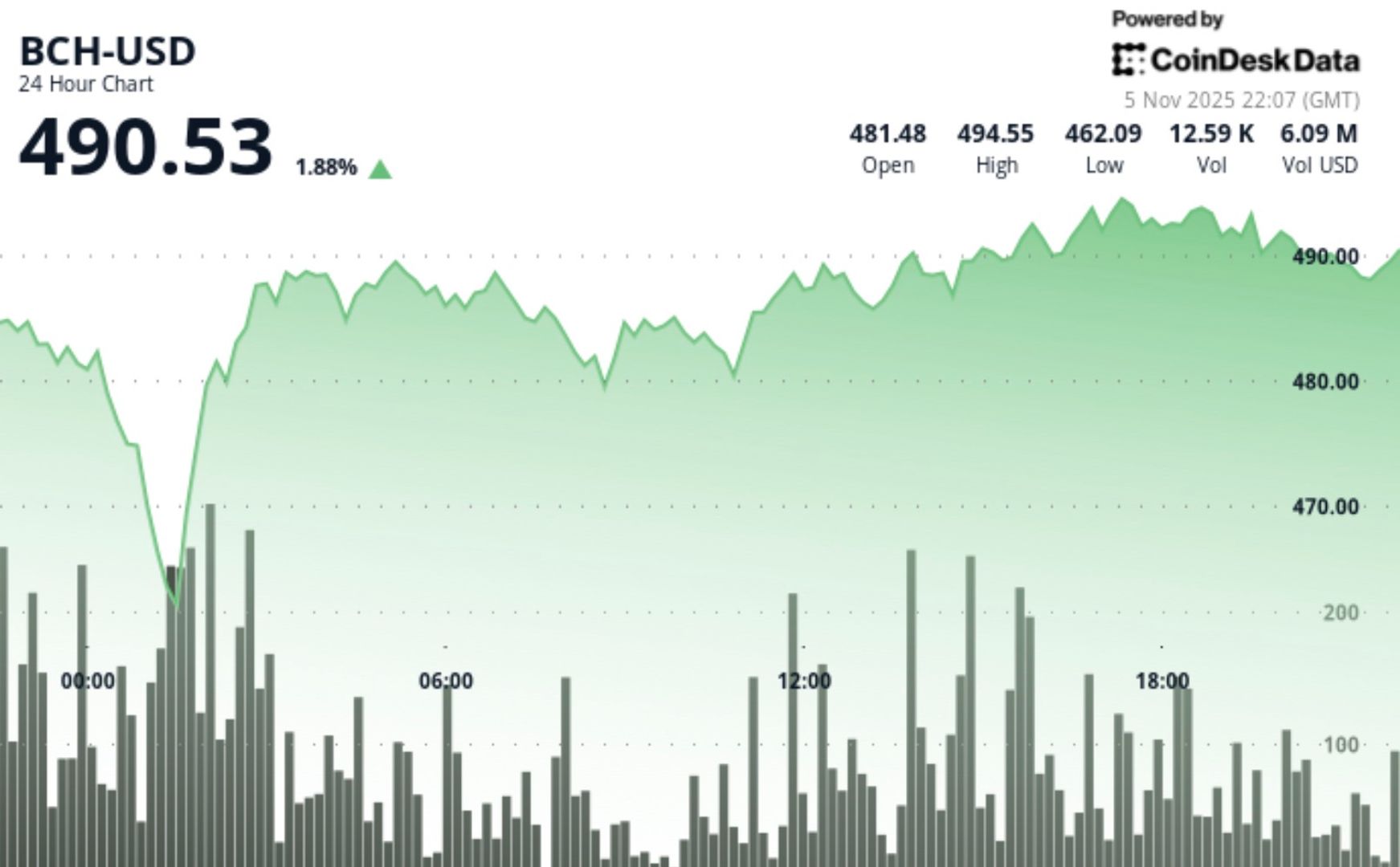The emergence of Bitcoin ETFs
Bitcoin ETFs are concern vehicles that let organization and retail investors to summation vulnerability to Bitcoin without straight owning oregon managing the cryptocurrency.
Since the US Securities and Exchange Commission approved spot Bitcoin ETFs successful January 2024, the marketplace has grown substantially.
- By Q4 2024, organization holdings successful US Bitcoin ETFs surged to $27.4 billion, a 114% increase from the erstwhile quarter. This accelerated adoption showcases the increasing organization involvement successful cryptocurrency exposure.
- Major players similar BlackRock, Fidelity, VanEck, ARK Invest and Grayscale present negociate Bitcoin ETFs. BlackRock's iShares Bitcoin Trust (IBIT) and Fidelity’s Wise Origin Bitcoin Fund (FBTC) are among the well-known offerings.
- Institutional adoption of Bitcoin ETFs is accelerating. Registered concern advisers (RIAs) person go top holders of spot Bitcoin ETFs, reflecting increasing assurance successful the plus class. In June 2025, concern advisers held implicit $10.3 cardinal successful spot Bitcoin ETFs, astir fractional of full organization assets.
- Family offices and wealthiness managers are besides exploring crypto investments. A 2024 BNY Mellon report indicates that 39% of single-family offices are actively investing oregon considering crypto investments, driven by lawsuit request and strategical analysis.
ETFs person made it easier for institutions to participate the Bitcoin marketplace portion satisfying regulatory compliance and interior hazard frameworks. BlackRock recommends a portfolio allocation of up to 1-2% successful Bitcoin, citing its imaginable for diversification and instrumentality enhancement.

Bitcoin vs bonds: Risk and instrumentality
The trade-off betwixt hazard and instrumentality is cardinal erstwhile comparing Bitcoin ETFs to bonds.
Bitcoin’s humanities show has been characterized by precocious volatility and important returns. Let’s spot how:
- In 2024, Bitcoin returned 114%, outperforming large plus classes. However, its annualized volatility is astir 50%, importantly higher than bonds and equities.
- Traditional bonds connection stableness and predictable income. For instance, arsenic of mid-2025, the iShares 20 Year Treasury Bond ETF (TLT) offered a thirty-day output of astir 4.55%, portion the Vanguard Total Bond Market ETF (BND) offered a thirty-day yield of astir 3.8%. These ETFs supply vulnerability to long-duration Treasurys and a wide premix of investment-grade bonds, respectively, appealing options for income-focused portfolios during periods of elevated involvement rates and marketplace volatility.
Interestingly, the classic 60/40 portfolio, agelong considered a benchmark for organization and status portfolios, allocates 60% to equities and 40% to bonds. However, prolonged periods of debased enslaved yields and inflationary pressures person prompted calls for rethinking this model.
In 2022 and 2023, accepted enslaved portfolios suffered antagonistic returns owed to rising involvement rates, whereas Bitcoin saw a resurgence successful value. This asymmetry has prompted institutions to reassess the risk-reward calculus of allocating to bonds alone.
Bitcoin ETFs are progressively being evaluated arsenic imaginable alternatives for the fixed income information of specified portfolios. In 2025 alone, US spot Bitcoin ETFs had attracted implicit $40.6 billion successful nett inflows done aboriginal February, a 175% year-over-year increase compared to the aforesaid play successful 2024.
Meanwhile, May 2025 saw a grounds $6.35 billion nett inflows into BlackRock’s IBIT, its largest-ever monthly haul. These figures item the increasing momentum down Bitcoin arsenic a credible complement.
Did you know? A 2024 study by ARK Invest and 21Shares recovered that adding a 5% allocation to Bitcoin successful a accepted 60/40 portfolio could summation annualized returns by implicit 3%, albeit with a emergence successful volatility.
ETF strategies for status and pension funds
Retirement and pension portfolios typically prioritize superior preservation, dependable income and ostentation hedging.
Traditionally fulfilled by bonds and unchangeable assets, these portfolio goals are being challenged by prolonged debased yields and rising inflation. As a result, immoderate forward-thinking organization investors person begun exploring small, controlled Bitcoin ETF allocations to heighten risk-adjusted returns portion adhering to their blimpish mandates.
Examples of specified pension funds include:
- Wisconsin State Investment Board (SWIB): SWIB disclosed an archetypal $163 cardinal concern successful Q1 2024 ($99 cardinal successful IBIT and $64 cardinal successful GBT). By the extremity of 2024, it had expanded its IBIT presumption to ~$321 cardinal crossed 6 cardinal shares.
- Michigan State Investment Board: Michigan joined the Bitcoin ETF inclination by becoming a notable holder of the ARK 21Shares Bitcoin ETF (ARKB), with an allocation of astir $7 million. Though comparatively small, the concern reflects a cautious but wide determination toward gaining Bitcoin vulnerability done regulated fiscal instruments that acceptable wrong the compliance parameters of large-scale nationalist funds.
- Houston Firefighters’ Relief and Retirement Fund: One of the earliest nationalist pension funds to experimentation with crypto, the Houston Firefighters’ Relief and Retirement Fund allocated a information of its portfolio to Bitcoin via New York Digital Investment Group (NYDIG), adjacent earlier ETF approvals. The move, portion modest, signaled aboriginal designation of Bitcoin’s asymmetric instrumentality imaginable and its relevance successful modern portfolio theory, peculiarly for funds managing long-duration obligations.
Did you know? On June 16, 2025, the ARK 21Shares Bitcoin ETF (ARKB) executed a 3-for-1 stock split, aiming to amended accessibility and liquidity without altering its concern strategy oregon nett plus value. This metonymic determination reflects increasing capitalist demand, and Bitcoin’s surge past $100,000 bolstered the split’s rationale.

Tokenized bonds and crypto-backed fixed income
These are alternatives to Bitcoin ETFs that are gaining organization attention, specified arsenic tokenized fixed income.
These are accepted bonds and wealth marketplace assets issued arsenic integer tokens connected blockchains. This innovation blends institutional-grade assets with blockchain efficiencies specified arsenic automated settlement, transparency and programmability.
- BlackRock’s BUIDL fund: Launched successful March 2024, the BlackRock USD Institutional Digital Liquidity Fund (BUIDL) tokenizes US Treasurys, currency and repo agreements connected blockchain platforms similar Ethereum, and aboriginal Solana. Within six weeks, the tokenized money amassed ~$375 million AUM, rapidly surpassing Franklin Templeton’s offering, and grew to implicit $1.7 cardinal dispersed crossed 7 blockchains arsenic of March 2025. Unique features see 24/7 trades and tokenized dividend distributions.
- Franklin Templeton’s OnChain US Government Money Fund (FOBXX/BENJI): Introduced successful 2021 utilizing Stellar, and expanded to Ethereum, Avalanche, Base, Aptos and Solana, FOBXX tokenizes US authorities securities, currency and repos nether UCITS regulations. With much than $594 million AUM by February 2025 and a ~4.5% yield, it exemplifies the archetypal regulated, tokenized wealth marketplace money successful Europe.
- Crypto‑backed output products: Many platforms are experimenting with crypto‑backed bonds (e.g., Maple Finance, Open Eden), decentralized indebtedness instruments collateralized by integer assets. While inactive successful aboriginal stages, their extremity is to connection yields connected over‑collateralized loans utilizing blockchain-native collateral, previewing a aboriginal wherever integer plus borrowing underwrites fixed-income-like returns.
Challenges and considerations portion incorporating Bitcoin ETFs successful fiscal portfolios
Bitcoin ETFs travel with their ain risks, and 1 indispensable bash their ain research, arsenic nary of this comprises fiscal advice.
Bitcoin ETFs’ challenges for institutions include:
- Volatility: Bitcoin’s terms fluctuations tin beryllium significant, posing risks for blimpish investors.
- Regulatory uncertainty: The evolving regulatory scenery tin interaction the show and availability of crypto-related concern products.
- Lack of yield: Unlike bonds, Bitcoin ETFs bash not supply regular income, which whitethorn deter income-focused investors.
- Operational risks: Risks related to custody, accounting standards and ESG concerns tin hinder adoption by ample institutions. Bitcoin’s vigor consumption, for example, remains a sticking constituent for immoderate ESG-compliant portfolios.
Bitcoin ETFs connection a compelling accidental for organization investors seeking diversification and growth. While they whitethorn not afloat regenerate bonds successful portfolios, they tin complement accepted assets, particularly successful a low-yield oregon inflationary environment.
A balanced approach, incorporating a humble allocation to Bitcoin ETFs, tin heighten portfolio show portion managing risk. As the fiscal scenery evolves, institutions indispensable stay agile, adapting their strategies to see emerging plus classes similar Bitcoin.

 4 months ago
4 months ago









 English (US)
English (US)